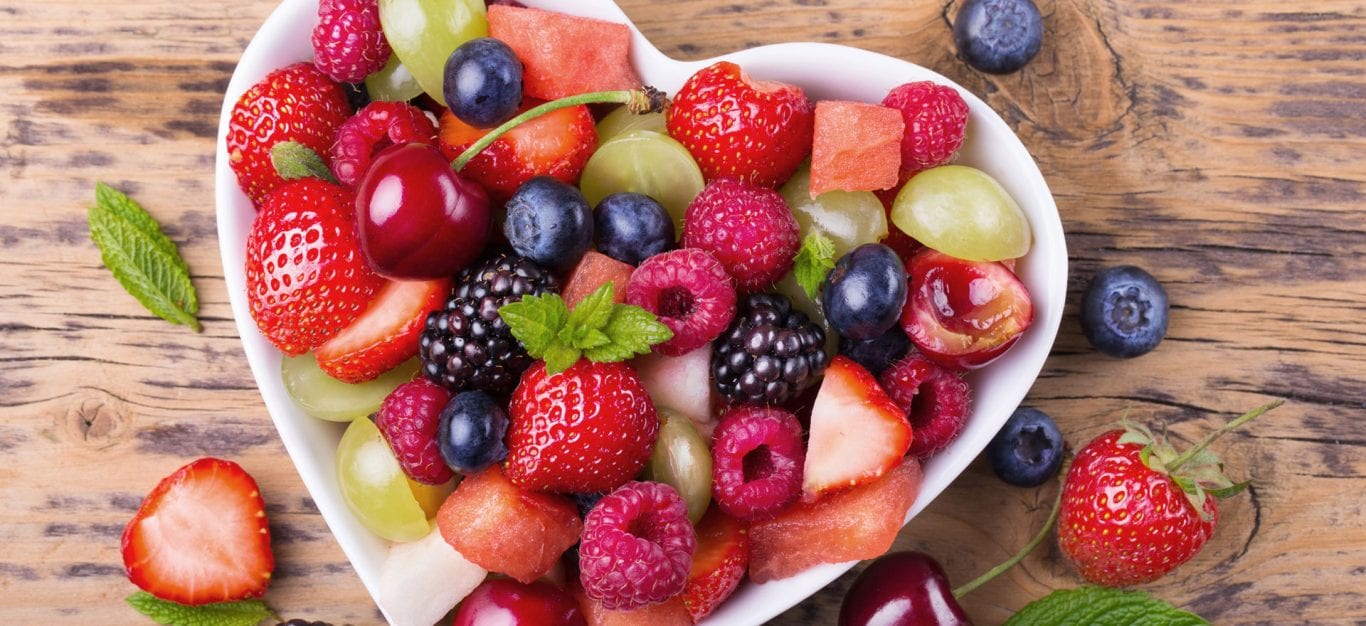New Year, New You – Small Steps To A Healthier You In 2021
Happy New Year to You! 2021 may not have started in the way that we had all hoped with the ongoing Coronavirus pandemic but every New Year presents the perfect opportunity to start afresh. After the Christmas excesses, it’s good to re-establish healthy habits and make some new everyday diet and fitness routines. And this year is no exception!
![[www.benecol.ie][38]NEW_THE-MANY-BENEFITS-OF-EXERCISE_1920x880-1 how to start healthy lifestyle](https://evermade-benecol-multisite-website.s3.eu-north-1.amazonaws.com/wp-content/uploads/sites/5/2020/06/25073817/www.benecol.ie38NEW_THE-MANY-BENEFITS-OF-EXERCISE_1920x880-1-1366x626.jpg)
Out with the old and in with the new
Lots of us make New Year’s resolutions to eat more healthily, stay on top of our cholesterol, shape up and slim down – and that’s great news! During these difficult times, making pledges to eat better, move more and live well are more important than ever to keep ourselves healthier and happier.
Yet many of us know all too well that New Year’s resolutions don’t always quite succeed. Why? We put too much pressure on ourselves with unachievable big goals – only to give up after a few weeks. So if you want to make long-term changes to your diet and lifestyle, set smaller and more attainable New Year’s goals, which you can actually achieve. Remember it’s often the small steps, not the giant leaps that bring about the most lasting change.
Be SMART about your New Year goals
When it comes to New Year resolutions, make your goals SMART. They should be:
- SPECIFIC – rather than ‘I want to eat more of the good stuff’, be specific e.g. ‘I want to include at least 2 portions of fruit at breakfast and 3 portions of vegetables at lunch and dinner per day..’
- MEASUREABLE – put a measurement next to your goal e.g. ‘I want to eat the recommended target of 30g fibre a day.’
- ATTAINABLE – divide your goal into doable chunks e.g. ‘I will start with 4-A-Day or ‘ I will increase my fibre intake by one portion per week.’
- RELEVANT – make it specific to you e.g. ‘I want to improve my cholesterol levels’ or ‘I want to enjoy good heart health.‘ Make your goal worthwhile and meaningful for you.
- TIME-BOUND – set a realistic date e.g. ‘I want to achieve my 5-A-Day quota in two months time.’
Using this approach, you’ve gone from a vague goal of ‘I want to eat healthier’ to a detailed goal with a plan of action on what you want to achieve.
A helping hand from Benecol – 13 tips how to start a healthy lifestyle
At Benecol® we know how tricky it can sometimes be to stick to New Year resolutions, so to help you become the ‘new you’ this New Year we’ve put together some healthy eating and lifestyle tips. These tips will help you and your family keep your cholesterol in check and work towards a healthy 2021.
1. It all adds up…
Start by focusing on one change at a time and then build on these new healthy habits consistently over the next 12 months – small changes to your eating habits can add up to big differences in 2021 – and beyond. Run through our suggestions to see if there are any you could start with today.
2. Reject ‘diet’ mentality
At this time of the year, the Internet and social media pages are awash with misleading info and claims about the best way to loose weight, so it can be tempting to turn to severely restrictive and unbalanced diets in an effort to lose weight quickly. But forget about following the latest ‘quick fix’ diet – ‘Going on a diet’ infers there’s a start and stop date, meaning you only change what you eat during these times. Once you ‘finish your diet’ you return to the same eating habits that piled on the pounds in the first place.
Most faddy diets aren’t a long-term solution to losing weight and keeping it off because they are hard to stick to. So instead plan to make healthy, balanced changes to the way you’re eating, while controlling your portions and being physically active. And don’t try to lose weight too quickly – about 1-2 lbs (0.5-1kg) per week is about right.
3. Aim to reach your 5-A-Day

Did you know that only 33 per cent of British adults meet the 5-A-Day recommendation ? You can easily achieve this target by eating a wide range of different fruits and vegetables in your everyday diet, and then brightening up your plate by opting for a rainbow of colours to ensure you’re getting a varied mix of vitamins and minerals.
5-A-Day may seem like a struggle if you cannot always get your hands on fresh produce, but don’t forget that tinned, frozen, dried and fruit juice still count and are just as nutritious, so stock up on canned pulses (beans, peas and lentils), fruit (in natural juice) and veg (in unsalted water), frozen peas and mixed veg and berries, or perhaps get a veggie box delivered straight to your door with local and seasonal produce. As a guide, one portion is 80g, which is a handful, or 3 tablespoons or 30g of dried fruit. You can also add chopped celery, mushrooms or carrot to spaghetti bolognaise, snack on veg sticks with crushed butterbean dip or hummus or add fruit to yogurt and porridge in the morning or in baking.
Read more:
4. Try new things in your everyday diet
When it comes to making dietary changes, we often focus on the things that we should be cutting down on – foods rich in saturated fat, salt and added ‘free’ sugars, for example, but this year also think about what new things you can ‘add in’ to your everyday diet. Can you introduce more cholesterol lowering foods like Benecol® One-a-Day yogurts or yogurt drinks with plant stanols to your daily routine? Why not aim to get creative with vegetables you wouldn’t normally choose? How about varying your grains, and giving ancient varieties like quinoa a go? Or experimenting with new beans and pulses (ever tried flageolet beans or black eyed peas?)
Find other ways to manage your emotions. Food fills many other roles in our lives apart from simply stopping us feeling hungry – fuels our body and ensures it works at its best, keeps our concentration topped up and our mood positive. We also often turn to food when we are bored, fed up, angry or anxious. During these stressful times and cold winter days, it can be a particular problem if your environment is full of indulgent comfort foods, giving you something to reach for whenever the emotional need arises.
So remove these tempting foods from your kitchen and then retrain yourself to find other ways to manage your emotions, such as phoning a friend, listening to music, going for a walk with the dog, doing a yoga session or having a hot bubble bath – your waistline, cholesterol levels and heart health will thank you.
5. Make a plan for the week
We’re all leading busy lives, but there’s no better place to make healthier eating choices than in the supermarket. Healthy eating really starts with what you’re putting in your shopping basket – what you stock up your kitchen cupboards, fridge and freezer with is what you’re are going to eat at home, so only bring food into the house that you can plan to eat. That is why it helps to get organised, make lists and plan – a schedule of menus for the week is a great way to ensure you’re meeting your nutritional needs, and a shopping list will ensure that you have everything you require, as well as helping to reduce food waste and your costs too.
6. Get cooking

If nothing else, with restaurants closed, lockdown is giving us the chance to get our cooking mojo back and ditch our reliance on highly processed and convenience foods, which can be high in fat, saturated fat and salt. The great thing about cooking from scratch and using fresh, whole foods, is that you know exactly what is on your plate, so use this time to dig out those old family recipes or try something new with new ingredients. It’s a great way to look after your mind and body, discover good, satisfying food, and you may even learn a few new cooking skills along the way.
And embrace batch cooking too – making up large quantities of your favourite meals, from stews to soups and curries, and then freezing them will mean you have a tasty, nutritious home cooked meal ready to pop into the oven when you need an easy supper to feed the family. Check out some of the Benecol® heart happy dinner recipes!
7. Get enough sleep
Sleep is so important for our immune system, our mental wellbeing and even our heart health. It can also help us control our weight, because hormones that affect our sense of hunger and fullness are disrupted. So pledge to sleep better this year and get the NHS recommended six to nine hours of sleep every night . Create a healthy bedtime routine – avoid too much caffeine, limit alcohol and don’t stay up late staring at TV and phone screens for too long.
8. Eat more plant foods
Many of you pledged to eat vegan for the month of January. But, you don’t need to become vegan to have a healthier heart, the more plant foods you have in your diet all year round, the better it is for your heart and overall health, and the planet too. That’s because plant foods are packed with vitamins and minerals, fibre, unsaturated fats and phytonutrients (e.g. antioxidants). And eating a predominately plant-based diet – one that’s rich in fruits vegetables, wholegrains, legumes (beans and pulses) nuts and seeds, and herbs and spices – is associated with lower heart disease risk factors such as ‘bad’ LDL cholesterol (more on LDL cholesterol HERE). Aim for 30 different plant-based foods every week as your New Year’s goal.
You can start working towards this goal by making small swaps – for example, try using less meat in your chilli con carne or bolognaise and bulk it out with added mushrooms, lentils or beans. This also works for shepherd or cottage pies, soups, stir fries and lasagnas too. Or building fajitas on a foundation of meat substitutes like tofu, quorn, jackfruit and tempeh.
9. Enjoy alcohol with moderation
Even though it may be tempting during this time of lockdown to relax and de-stress by drinking more alcohol than usual, make sure you avoid exceeding the weekly recommendations (and to have some alcohol free days). Cutting down on alcohol can help you to lower your cholesterol levels and can improve your heart health in other ways too, by helping to look after your liver, your blood pressure, and your waistline.
Make a goal to set your number of drinks and alcohol free days at the start of the week, and get inventive with alternatives – NoLo (alcohol free and low alcohol drinks) and mocktails, and alternate any alcoholic drinks with a glass of water to rehydrate.
10. Eat more mindfully
Mindless snacking or distracted eating – that’s eating without thinking about what and how much you’re consuming, can easily lead to weight gain, and as a result, push up your cholesterol levels. So make it a New Year’s resolution to try and focus on your food when you’re eating – don’t eat on the move, sit at a table, use a plate and cutlery, avoid screens and slow down when eating, so you’re paying full attention to your thoughts, senses and feelings during and after the eating occasion .
11. Embrace exercise

Staying active is a cornerstone of good health – spanning across all aspects of health – both physical and mental. The more time you can spend being active, the better. Any activity is better than none and more is better still! It’s recommended that adults do at least 150 minutes of moderate intensity activity a week such as brisk walking or leisurely swimming, or 75 minutes of vigorous-intensity activity such as jogging, running or fast cycling . Plus, do strength exercises at least twice a week such as lifting weights or heaving shopping bags or yoga, to keep your muscles strong.
Most of us have more time on our hands now that we’re staying at home more, so let lockdown days encourage you to think about moving more this year, moving more often, and moving in any way you can. Although gyms and leisure centers are closed, there’re still lots of ways to get in some daily exercise with so many workout videos available online. Exercise outside is still permitted so turn off the TV, get off your phone and head outside for some fresh air.
12. Drink plenty of water
Even though it’s cold outside, it’s really important to stay well hydrated every day – especially if you’re upping your intake of fibre rich, plant foods! Drinking enough fluid is essential for many important functions in your body, such as regulating your body temperature, transporting nutrients and removing waste products . Even small amounts of dehydration can negatively impact your cognitive and physical functions , so make a promise to yourself to keep tabs on your water intake in 2021.
Our fluid needs vary, but as a guide women need around 1.6 litres of fluid and men around 2 litres every day (that’s around 6 to 8 glasses), on top of the fluid that you get from the foods we eat. Water is the best choice as it’s safe for teeth, calorie and sugar free, but with the exception of alcohol, all fluids towards your fluid intakes including tea, coffee, milk, fruit juice, smoothies, no added sugar cordial or soft drinks.
Read more: Water – Why is it important?
13. Fall in love with fibre
People with a healthy heart tend to eat more fibre-rich foods. UK health guidelines recommend we consume 30g of fibre a day , but on average we are only managing 19g! So upping your intake of fibre in 2021 is a must if you want to take good care of your heart! The simple resolution to increase your fibre intake is to make the switch from ‘white’ carbs (which lose much of their fibre, during processing) to wholegrain or higher fibre varieties, such as brown rice, oats, wholewheat pasta and wholemeal bread, as well as enjoying more legumes and pulses, skin on fruit, vegetables and potatoes, and nuts and seeds, too.
And while it’s a good goal to boost your fibre intake this year, it’s a good idea to vary it, too. So why not try your hand at some of the less familiar wholegrains available such as quinoa, whole barley, bulgar (cracked) wheat, millet, freekah, kamut, amaranth or even buckwheat.
Read more: How to eat more fibre?
What are you waiting for? Start today!
Eating well and exercising regularly – together with a helping hand from Benecol®, will go a long way to keeping your cholesterol on tract, looking good and feeling great. So what are you waiting for? Start today, and make 2021 the year of enjoying wonderful food, managing your cholesterol levels and loving good heart health.

Plant stanol ester has been shown to lower cholesterol. High cholesterol is a risk factor in the development of coronary heart disease.
